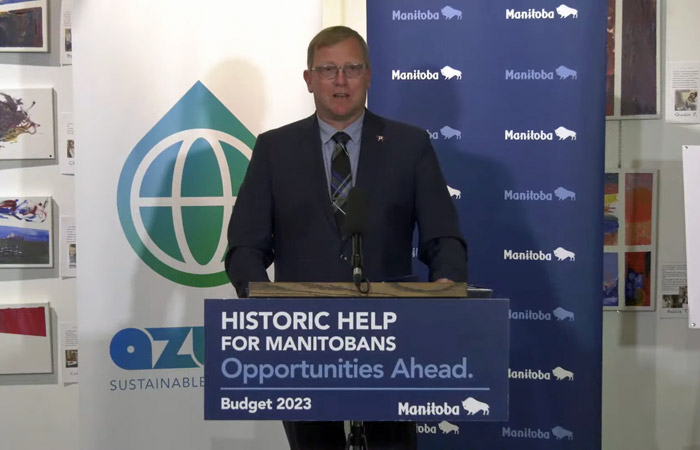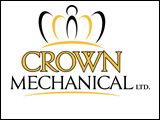The governments of Canada and Manitoba are providing funding under the Sustainable Canadian Agricultural Partnership (Sustainable CAP) to support Manitoba producers and processors in the areas of environmental sustainability and food safety and traceability.
“Our government continues to support Manitoba producers in assessing and improving their operations to address growing consumer and ecological demands for sustainably produced food,” said Manitoba Agriculture Minister Derek Johnson. “Our government is proud to offer programming that emphasizes sustainability and that leverages traceability as an effective tool to prevent and respond to animal health or food emergencies, making Manitoba food products more competitive on a global scale. Manitoba has one of the safest supplies of food in the world, and must continue to evolve and innovate to keep up with current safety requirements.”
The Sustainable Agri-Processing Program (SAP) offers grant funding toward private companies’ sustainability initiatives. Funding is available in the following areas:
- The Building Envelope, Lighting and Ventilation Upgrades stream helps applicants assess and upgrade agri-food and agri-product facilities and equipment to create energy savings and greenhouse gas reductions to contribute to Manitoba’s GHG emission reduction goals. Funding is available for up to 50 per cent of the project cost, up to a maximum of $25,000 per project.
- The Input Use Efficiency stream aims to reduce agri-food and agri-product wastage during harvest, storage of crops and ingredients and processing by providing funding towards the purchase of assets and systems that will mitigate wastage. Funding is available for up to 50 per cent of the project cost, up to a maximum of $50,000 per project.
- The Water Use Efficiency stream provides funding for projects that help reduce the amount of water used by agri-processors in production and sanitation processes, treatment of wastewater prior to being disposed or returned to the municipal system or to the recovery of nutrients from wastewater. This funding aligns with the Manitoba government’s Water Management Strategy , which guides future actions, decisions and investments to protect the province’s water resources and ecosystems while sustainably growing the economy and communities. Funding is available for up to 50 per cent of the project cost, up to a maximum of $250,000 per project.
- The Waste Use Efficiency stream supports projects that help reduce or divert agri-processing waste products, byproducts or coproducts. Funding is available for up to 50 per cent of the project cost, up to a maximum of $250,000 per project.
- The Food Safety and Traceability Program provides funding to assist the agri-food and agri-product sectors to adopt or improve food safety and traceability practices. Both food safety and traceability are important not only for public safety, but also a requirement for many customers, associations and regulators.
The Food Safety and Traceability Program will provide up to 60 per cent of eligible expenses, up to a maximum of $30,000 for food safety initiatives and up to 50 per cent of eligible expenses, up to a maximum of $30,000 for traceability initiatives.
Examples of eligible expenses include:
- developing and implementing preventative food safety programs;
- purchasing food safety and traceability-related equipment; and
- consultant fees and training costs.
Food safety and traceability are critical in food processing and distribution to protect consumer safety and markets. It is important that food and ingredients are able to be quickly traced back to the source to prevent or reduce harm to the public, Johnson noted.



